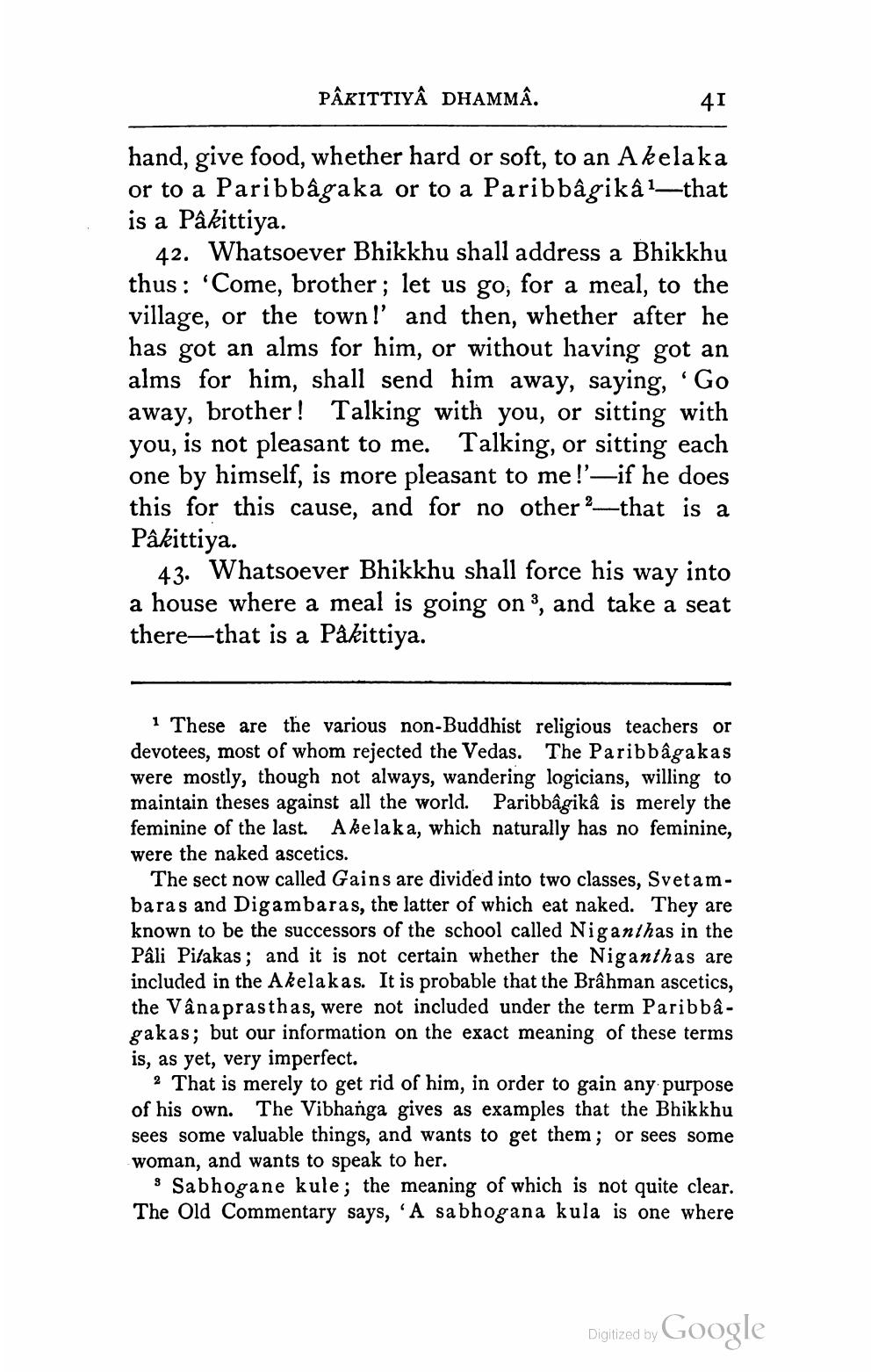________________
PÂKITTIYA DHAMMA.
41
hand, give food, whether hard or soft, to an Akelaka or to a Paribbâgaka or to a Paribbâgika —that is a Pâkittiya.
42. Whatsoever Bhikkhu shall address a Bhikkhu thus : 'Come, brother; let us go, for a meal, to the village, or the town!' and then, whether after he has got an alms for him, or without having got an alms for him, shall send him away, saying, 'Go away, brother! Talking with you, or sitting with you, is not pleasant to me. Talking, or sitting each one by himself, is more pleasant to me!'—if he does this for this cause, and for no other2_that is a Pâkittiya.
43. Whatsoever Bhikkhu shall force his way into a house where a meal is going on 3, and take a seat there—that is a Påkittiya.
1 These are the various non-Buddhist religious teachers or devotees, most of whom rejected the Vedas. The Paribbâgakas were mostly, though not always, wandering logicians, willing to maintain theses against all the world. Paribbâgikâ is merely the feminine of the last. A kelaka, which naturally has no feminine, were the naked ascetics.
The sect now called Gains are divided into two classes, Svetambaras and Digambaras, the latter of which eat naked. They are known to be the successors of the school called Niganthas in the Pali Pitakas; and it is not certain whether the Niganthas are included in the Akelakas. It is probable that the Brâhman ascetics, the Vânaprasthas, were not included under the term Paribbâgakas; but our information on the exact meaning of these terms is, as yet, very imperfect.
2 That is merely to get rid of him, in order to gain any purpose of his own. The Vibhanga gives as examples that the Bhikkhu sees some valuable things, and wants to get them; or sees some woman, and wants to speak to her.
S Sabhogane kule; the meaning of which is not quite clear. The Old Commentary says, 'A sabhogana kula is one where
Digitized by Google




